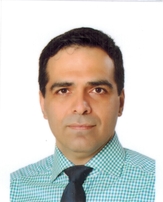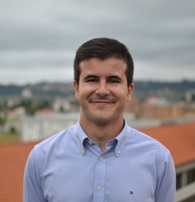IEEE PELS Lunch and Learn about Electric Vehicle Charging Stations and High Power Density Converters
We are pleased to host Dr. Ali Khajehoddin, Associate Professor in Electrical and Computer Engineering at the University of Alberta in Edmonton, AB, Canada. He will talk about high power density converters. We are also happy to host Dr. Aitor Vázquez Ardura, Assistant Professor from the University of Oviedo, Gijon, Spain. He will talk about his research in Battery Electric Vehicle charging stations. We hope to see you there!
Date and Time
Location
Hosts
Registration
-
 Add Event to Calendar
Add Event to Calendar
Speakers
 Ali Khajehoddin of University of Alberta
Ali Khajehoddin of University of Alberta
High Power Density Power Converter and Control System Design
This talk is intended to provide an overview of active research topics in the area of Energy systems at University of Alberta, Canada. High efficiency, high reliability, low system cost, and high power density are crucial factors for power electronics applications such as LED lighting, power adapters, servers, high power high voltage applications, renewable power converters, and solar micro-inverters. In this talk, a few power converter and control system design challenges for reliable high power density applications will be discussed and novel modeling techniques, topologies and control system design developed at research group at University of Alberta Power Electronics Lab (UAPEL) will be briefly presented.
Biography:
Dr. Ali Khajehoddin completed his PhD in Electrical Engineering specialized in power electronics and their applications in renewable energy systems from Queen's University, Kingston, Ontario, Canada, in April 2010. He received his BSc and MSc degrees in Electrical Engineering at Isfahan University of Technology, Iran. After completing his Master’s, he co-founded a start-up company, which was focused on the development and production of power analyzers and smart metering products used for smart grid applications. For his doctoral research at Queen’s, he focused on the design and implementation of compact and durable micro-inverters for photovoltaic (PV) grid connected systems. Based on this research, Queen’s University spun off SPARQ systems Inc. where, as the lead R&D engineer, he worked toward mass-production and commercialization of micro-inverters from 2010 to 2013.
In 2013, he joined the Department of Electrical and Computer Engineering, University of Alberta, Edmonton, AB, Canada, where he is currently an Associate Professor. He is an editor of IEEE Transaction on Power electronics and IEEE Transaction on Sustainable Energy journal and IEEE Journal of Emerging and Selected Topics in Power Electronics.
 Aitor Vázquez Ardura of University of Oviedo
Aitor Vázquez Ardura of University of Oviedo
Battery Electric Vehicles charging stations: challenges and opportunities
Biography:
in 2009, and the PhD. degree in electrical engineering in 2016, from the University of Oviedo, Gijon, Spain. He became a Member of the
Power Supply System Group, University of Oviedo, in 2010. Since 2016, he is Assistant Professor in this University. He is a currently member

